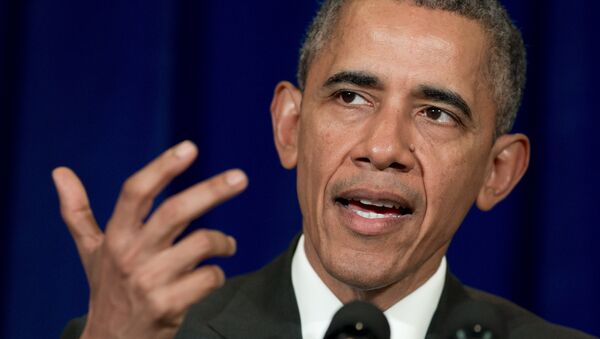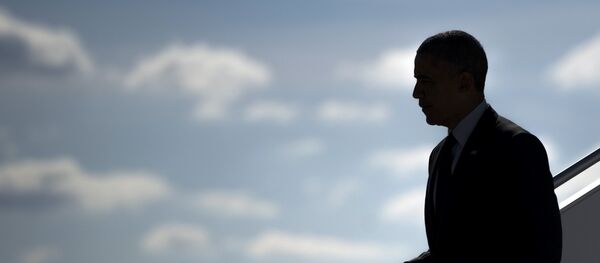"It's important to note," the analyst continued, "that after the difficult G-20 summit in Antalya, the caravan of global politics moved on to two capitals in Southeast Asia – Manila and Kuala Lumpur, where the United States went on the offensive, first and foremost against China. This fits well with the former (and conspicuously failed) US policy —to withdraw from the Middle East and focus on Asia."
At the same time, Kosyrev noted that in the course of his visit to Malaysia, "Obama insistently, if not to say aggressively, repeated the ideas which the world has been reacting to with skepticism and laughter –namely, that the Russian airstrikes in Syria have only helped the terrorists, and that Russia should make "strategic adjustments," in order to become "effective partners with us and the other 65 countries who are already part of the counter-ISIL campaign."
"On the same day," the political observer noted, "Obama got his response, first from Russian Prime Minister Dmitri Medvedev, who was also in Kuala Lumpur, and then from Syrian President Bashar Assad, from Damascus."
For his part, Medvedev retorted the US president by noting that "the strengthening of the Islamic State became possible partially due to the irresponsible policies of the United States. Instead of concentrating joint efforts on fighting terrorism, the United States and its allies decided to fight against the lawfully elected president of Syria, Bashar Assad," instead.
Assad, meanwhile, simply reiterated that in two months, the Russian forces fighting in Syria had made more progress in the country than the US-led, "65 country" coalition had in a year's time.
"But their responses are only answers to the obvious," Kosyrev noted. What interests the analyst more is the fact that the US president "continues to speak, in apparent defiance of the facts, using statements which are, to put it mildly, simply delusional."
Expanding on his argument, the journalist pointed to the growing media coverage surrounding the Pentagon inquiry into intelligence assessments over the 'ISIL surge', which occurred when the terror group overran a series of Iraqi cities last year. American media including The New York Times recently revealed that before the intelligence assessments documenting the humiliating defeat of the US-trained and equipped Iraqi army were finalized, the analysts' superiors had made significant revisions to the documents.
Commenting on the string of defeats, culminating in the ISIL capture of Mosul, NYT noted that in the "revised documents, the Iraqi Army had not retreated at all. The soldiers had simply 'redeployed'."
"Such changes," the newspaper pointed out, "are at the heart of an expanding internal Pentagon investigation of Centcom, as Central Command is known, where analysts say that superiors revised conclusions to mask some of the American military's failures in training Iraqi troops and beating back the Islamic State. The analysts say superiors were particularly eager to paint a more optimistic picture of America's role in the conflict than was warranted."
This, Kosyrev noted, "is not an isolated story, but only one piece part of a larger tapestry. And this tapestry is dependent upon the Congressional hearings now underway looking to make clear who lied to whom, and who knew what, and when."
"Reading these materials," the journalist notes, "one realizes that in the US there are many people who know perfectly well that in the verbal skirmish between Obama, Medvedev and Assad in Kuala Lumpur, it wasn't Obama who came out on top. Yes, they all know about the failure at Mosul; they know that three quarters of American planes flying to bomb ISIL targets return with bombs and rockets which haven't been fired, apparently unable to find any targets. And they know much more."
"This," the commentator suggests, "is a very American phenomenon –lying on a mass scale, both in situations of international conflicts and in the domestic wars between interests lobbying for the minds of consumers. According to the rules, it is not possible to just admit 'we lied'. Instead, it's better to continue to talk nonsense all the way to the moment that one resigns."
"One day," Kosyrev joked, "scholars will begin to study these foibles of American civilization."




